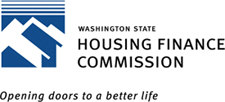
The solar installment on the roof of the Lutheran Church of the Good Shepherd in Olympia was made possible in part by the Sustainable Energy Trust. Photo Credit: Olympia Community Solar.
Contact Us:
energy@wshfc.org
206-254-5359
Sustainable Energy Trust
Build green, upgrade efficiently, or create renewable energy.
The Sustainable Energy Trust (SET) can finance energy-efficiency or renewable energy projects up to $1 million to the following borrowers:
Multifamily housing property owners
Nonprofit facility owners
Business owners
Housing developers
And others
All lending is subject to underwriting. Terms are up to 10-15 years at favorable interest rates. We require that you work with a contractor or energy auditor who analyzes the energy savings from the proposed upgrades or project and provides third party verification.
What can the Sustainable Energy Trust finance?
Energy and Water Efficiency Upgrades for Multifamily Housing and Nonprofit Facilities. Eligible projects must reduce utility consumption by at least 10 percent for existing buildings. Loans are typically structured so that payments are less than the utility savings, resulting in financial savings for the property owner. These projects have included but are not restricted to HVAC, lighting, envelope, water, and plumbing upgrades.
Who is Eligible? Property owners of multifamily housing and/or nonprofit facilities in Washington state. Energy and water efficiency upgrade loans may be available for condo associations.
Clean Energy Projects. Solar is the most common type of clean energy project we finance.
Who is Eligible? Business owners, multifamily housing owners, and nonprofit facility owners. Single-family homeowners are ineligible.
New Construction of High Efficiency Single-Family Homes. Eligible projects must exceed the Washington State Energy Code by at least 12 percent. Homes financed through SET have nearly net-zero emissions.
Who is Eligible? Housing developers in Washington state. Individuals seeking financing for their own homes are ineligible.
SET Program Fact Sheets
Download SET program brochure (PDF)
Multifamily Housing Fact Sheet (PDF)
Nonprofit Facilities Fact Sheet (PDF)
Questions
For questions about the Sustainable Energy Trust or to learn about the application process, contact:
Phone: (206) 254-5359
Email: energy@wshfc.org
If you have an eligible project in mind greater than $1 million, we may be able to help you identify other resources.
For Bond/Tax Credit Program Applicants & Energy Modeling Consultants
The Washington State Housing Finance Commission has an ongoing Request for Qualifications: Energy Modeling Consultants from engineers, energy consulting firms, and utility consumption analysts to qualify for the Commission’s referral list for such services.
Respondents with successful submissions will be placed on the Approved Roster of Energy Modeling Consultants from which organizations seeking financing may engage.
For Single Family Home Buyers
If you are looking to buy a new efficient home, or want to improve the efficiency of a home before you move in, check out the Commission’s Energy Spark Home Loan program.
If you have questions about the Energy Spark program, contact:
(206) 464-7139
dietrich.schmitz@wshfc.org.

